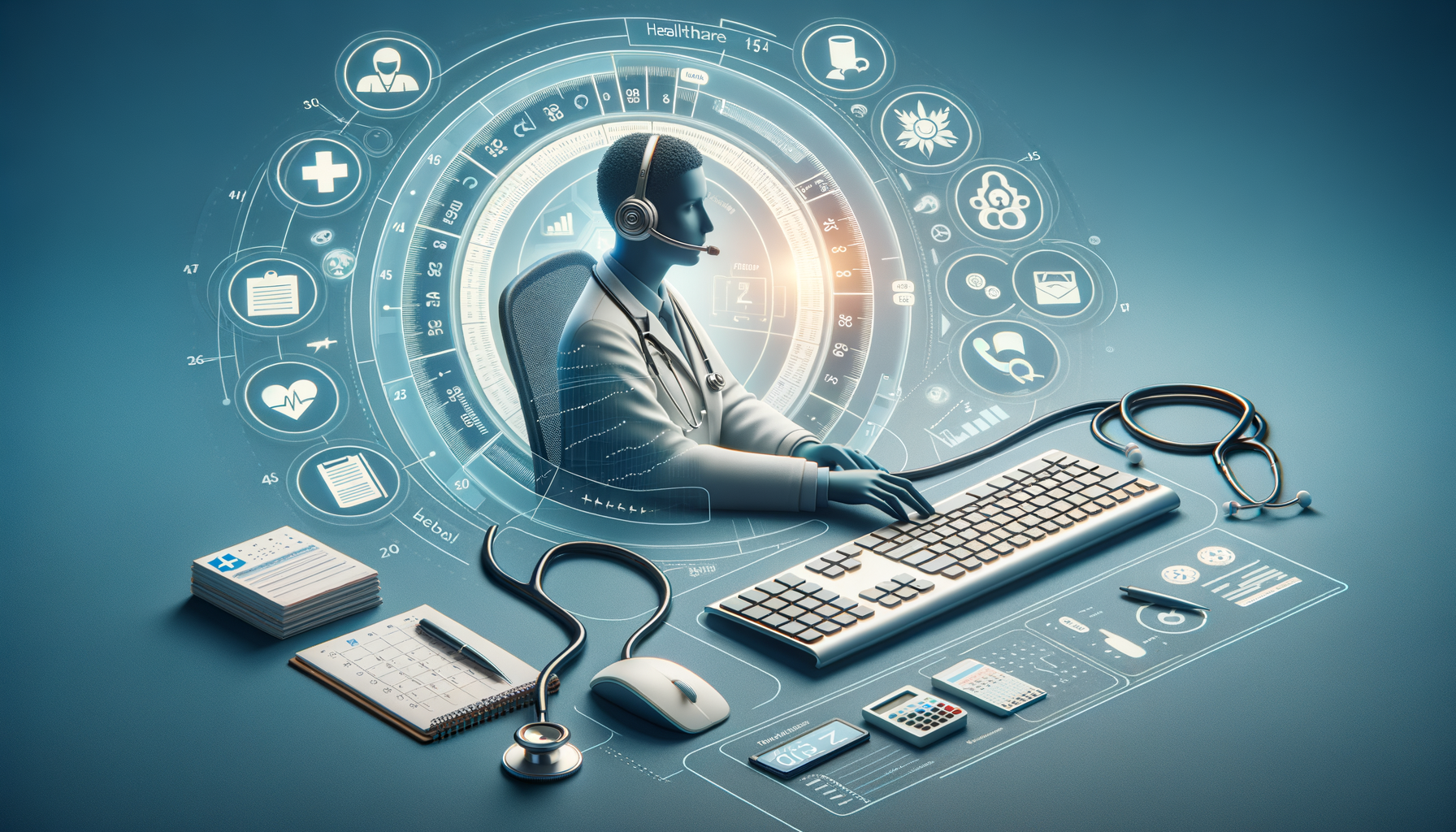The Rise of Remote Medical Receptionists
The healthcare industry is no stranger to change, and the advent of remote medical receptionist roles is a testament to this evolution. As healthcare facilities strive to provide better patient care while optimizing operational efficiency, the role of a remote medical receptionist has become increasingly pivotal. These professionals are responsible for managing the front desk operations from afar, ensuring that patients receive seamless service without the need for physical presence.
Remote medical receptionists handle a variety of tasks, including scheduling appointments, managing patient records, and handling billing inquiries. The transition to remote work has been facilitated by advancements in technology, enabling these professionals to perform their duties effectively from virtually anywhere. This shift not only brings convenience to healthcare providers but also offers flexibility to the workforce.
According to a report by the Bureau of Labor Statistics, the demand for medical secretaries, including receptionists, is expected to grow by 10% from 2020 to 2030. This growth is indicative of the healthcare sector’s increasing reliance on administrative support to manage the complexities of patient care. Remote medical receptionists are at the forefront of this trend, bridging the gap between patients and healthcare providers in an increasingly digital world.
Key Responsibilities and Skills Required
Remote medical receptionists play a crucial role in the healthcare ecosystem. Their responsibilities are multifaceted, requiring a blend of administrative skills and healthcare knowledge. Key tasks include:
- Managing patient appointments and scheduling.
- Handling phone calls and inquiries from patients.
- Maintaining and updating patient records.
- Processing billing and insurance claims.
- Coordinating with healthcare providers to ensure smooth operations.
To excel in this role, remote medical receptionists must possess strong communication skills, as they are often the first point of contact for patients. Organizational skills are also essential, given the need to manage multiple tasks simultaneously. Familiarity with healthcare software and electronic health records (EHR) systems is crucial for efficiently handling patient data.
Moreover, empathy and patience are vital traits, as receptionists frequently interact with patients who may be anxious or stressed. The ability to provide reassurance and clear information can significantly enhance the patient experience, making remote medical receptionists invaluable to healthcare facilities.
Technology and Tools Facilitating Remote Work
The transition to remote work for medical receptionists has been made possible by a range of technological advancements. Cloud-based systems and telecommunication tools are at the heart of this transformation, allowing receptionists to access patient information and communicate with healthcare teams seamlessly.
Some of the critical tools used by remote medical receptionists include:
- Electronic Health Records (EHR) systems for managing patient data.
- Telehealth platforms for virtual patient interactions.
- Scheduling software to coordinate appointments efficiently.
- Secure communication tools for maintaining patient confidentiality.
The integration of artificial intelligence (AI) in healthcare is also paving the way for more efficient operations. AI-powered chatbots, for instance, can handle routine inquiries, freeing up receptionists to focus on more complex tasks. This technological synergy not only enhances productivity but also ensures that patients receive timely and accurate information.
As technology continues to evolve, remote medical receptionists are likely to have access to even more sophisticated tools, further enhancing their ability to support healthcare providers and improve patient care.
Benefits and Challenges of Remote Medical Receptionist Roles
The shift to remote work has brought numerous benefits to both healthcare providers and receptionists. For healthcare facilities, remote receptionists can reduce overhead costs associated with maintaining physical office space. Additionally, remote work can attract a broader talent pool, as geographical barriers are minimized.
For receptionists, the flexibility of working remotely can lead to improved work-life balance, reducing stress and increasing job satisfaction. This flexibility can also accommodate individuals with disabilities or those who need to manage family commitments, making the role more inclusive.
However, remote work is not without its challenges. Maintaining clear communication with healthcare teams and patients can be more difficult when working remotely. Receptionists must be proactive in using communication tools effectively to bridge any gaps. Additionally, the lack of in-person interaction may lead to feelings of isolation, which can impact job satisfaction.
To overcome these challenges, healthcare facilities must provide adequate training and support to remote receptionists. Regular virtual meetings and team-building activities can help foster a sense of community, ensuring that remote workers remain engaged and motivated.
The Future of Remote Medical Receptionist Jobs
As the healthcare industry continues to embrace digital transformation, the role of remote medical receptionists is poised for further growth. The increasing adoption of telehealth services and the need for efficient administrative support underscore the importance of this role in modern healthcare.
Looking ahead, remote medical receptionists may see their responsibilities expand as technology continues to evolve. With the integration of AI and machine learning, receptionists could take on more analytical tasks, such as data analysis and patient trend monitoring. This shift would not only enhance their role but also contribute to more informed decision-making in healthcare settings.
Moreover, the trend towards personalized medicine and patient-centric care is likely to increase demand for receptionists who can provide tailored support and guidance to patients. This evolution will require ongoing training and professional development to ensure that receptionists remain equipped to meet the changing needs of the healthcare sector.
In conclusion, the role of remote medical receptionists is set to become even more integral to healthcare, offering exciting opportunities for those looking to make a meaningful contribution to the industry.




Leave a Reply